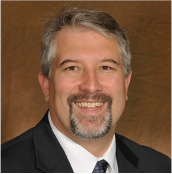Seminars
Dr. Erik G. Herbert
Materials Science and Technology Division
Oak Ridge National Laboratory
Creep at the Edge of Diffusion and Glide: Lessons from Soft Metals to Tungsten

ABSTRACT: This seminar will present a detailed analysis of time-dependent plasticity at small length scales, focusing on reconciling how the stress exponent n for creep evolves with local stress, defect density, and the available stress relief pathways. Recent instrumented indentation studies in high-purity indium and lithium films reveal a clear transition from stress-directed diffusional flow (n~1-2) to dislocation-mediated glide (n≫1), governed by stress, length scale, and strain rate. These insights highlight how diffusional creep can dominate until a critical stress and volume threshold are reached, at which point dislocation multiplication avalanches relax stress abruptly. In refractory systems such as tungsten at room temperature, where the Peierls barrier suppresses dislocation glide, the measured n during constant-load hold tests reflects the complex interplay between stress level, history effects, and available slip systems rather than an “intrinsic” exponent. Together, these studies suggest that instrumented indentation creep can be used as unique mechanistic compass: it captures not only stress-exponent variability with scale and history, but it also quantifies the operational efficiency of the dominant stress relief mechanisms operating under the imposed test conditions.
BIOGRAPHY: Dr. Erik G. Herbert is the Group Leader of Mechanical Behavior and Mechanics at the Oak Ridge National Laboratory. His area of expertise is small-scale mechanics and structure-property relationships. He earned his PhD in Materials Science and Engineering from the University of Tennessee, under the expert guidance of international pioneers and visionaries, Drs. George M. Pharr and Warren C. Oliver. Dr. Herbert worked with Dr. Oliver at Nanoinstruments for eleven years, served as a visiting scientist at the Centre for Research on Adaptive Nanostructures and Nanodevices at Trinity College in Dublin, and is formerly a tenured faculty member in Materials Science and Engineering at Michigan Technological University.